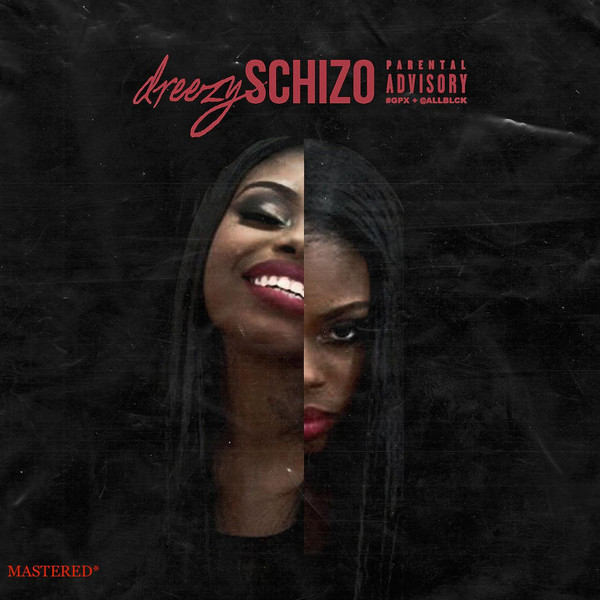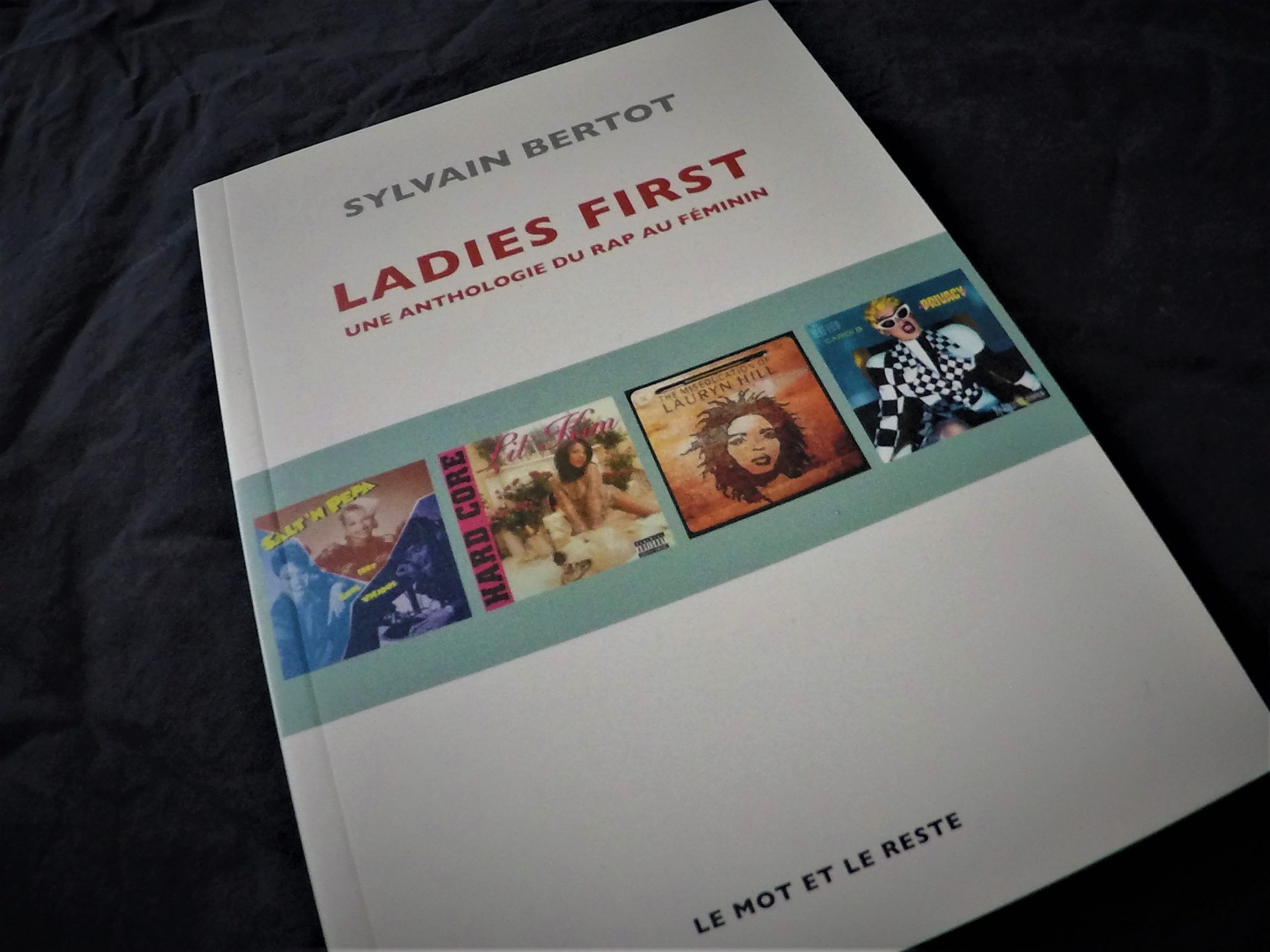Sylvain Bertot, by using Queen Latifah’s eponymous title, writes about female rappers in his fourth publication, edited by Le Mot et Le Reste. In this anthology of female rap, the journalist questions the stereotypes that occur in a domain mostly orchestrated by men.
Ladies First first explores the cultural wealth and diversity of a high-quality artistic production, focusing mainly on American artists, underground mixtapes and multi-awarded albums ! As great rap enthusiastics, we had to question Sylvain Bertot on this matter ! | (Interview Polka B. / Trad : Julie B)
How did you come up with the idea of writing a book about female rappers ?
I had already written several books about rap, and the matter of misogyny kept coming up when I was invited to speak at conferences. I noticed that neophytes often had a very negative perception of rap. Some experts also blamed me for not quoting enough female performers in my previous books when it is obviously such a wide subject to write about. I also considered that some truths deserved to be told concerning their role in rap’s evolution. Despite what many people think, their input has been crucial on several occasions.
You’ve always denounced an excessive valorisation of the New-Yorker scene among the rap critique. Yet, you book depicts a lot of female rappers from New York. Are there more female rappers there ?
Talking about the 80s and the 90s, it seems quite logic, because it all started there. The west coast influence started to increase gradually. Also, New York is THE big « liberal » city, in the American sense of the word. It is international, and gathers up the intellectual elites. It is, from this point of view, more « progressive » than the other cities. We can see this with rappers such as Princess Nokia or Junglepussy, who potlight feminism, their femininity, or their sexual orientation. They don’t come from the deep South.
In the 90s, the popular success of female rappers like Lauryn Hill also came from the fact that people used to consider her like a singer at first. In 2020, have we managed to let go of this stereotype in rap ? Is it still necessary for the artists to enter popular culture ?
Yes and no. Let’s take for instance two popular female rappers. I’m talking about Lizzo, who exclusively did rap in her debuts. Now that she’s famous, she only sings. But on the other hand, there are rappers like Cardi B. ! Even though she has a very pop base, and relies on effective marketing strategies, she doesn’t sing. It’s rap, pure and simple ! To be honest, this situation isn’t new. It already happened back in the 90s, when we had Lauryn Hill’s success on one side, and the fame of pure rappers like Foxy Brown and Lil’Kim on the other. And the necessity to sing in order to become « popular » doesn’t exclusively concern women. If you want to have access to a wider audience, you need to take a step back and propose something other than rap.
In your book, you write about the R’n’B album of the band TLC (Crazysexycool, 1994), because the whole DNA of the production team was bound to the 90s rap scene. Can we precisely date the moment when the musical industry started to bet on rap, female rappers included ?
I don’t know if we can precisely date it. R’n’B has this « variety » side that allows it to access great success. Once again, this move from the industry still exists today. When you listen to French rap nowadays, you can see it’s not that different from French variety. When rap is more pop, it sells more. The only difference there is with women is that, for historical and sexist reasons, society expects something specific from them. Being nice and singing, sure. But rapping bold texts is only authorised to boys. But the interesting thing is that Foxy Brown and Lil’Kim (among others) chose to do exactly the opposite and that’s what made their success. They shocked everyone.
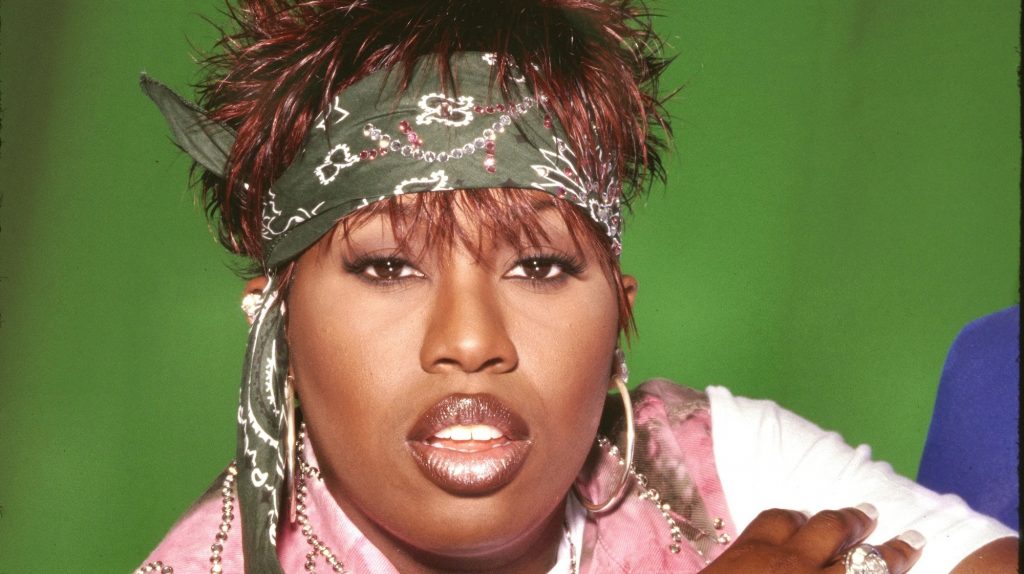
In the book, you talk about a female alter ego to each male rapper, inside the different collectives (such as Eve to DMX at Ruff Ryders’). But wasn’t this relation of domination (this idea of a « protector ») shattered by people like Missy Eliott ?
Completely. Even though she was not alone (she worked in collaboration with Timbaland and the whole Virginia Beach team), we can say that there is a before- Missy-Eliott, and an after-Missy-Eliott. For a long time, female rappers were perceived as original only through the fact that they were females. People didn’t see any « game changer » that could take rap to another level. People used to compare, for example, Salt-n-Pepa to Run DMC, and Lil’Kim completely stood in the shadow of Notorious B.I.G. It was perceived as though female rappers were only adapting to already famous masculine formulas. Missy Eliott was nothing like that. She innovated in every area. The 2000s’ rap — funky, groovy and South-like — owes her a lot. She
also influenced this decade’s visuals a lot. Her videoclips are incredible. We know her role has been crucial in this area.
There’s quite the gap between Missy Eliott and Nicki Minaj. Is she Missy’s heiress ? How did she give female rap its popularity back in 2010 ?
Women have always been a minority in rap. So when the sales dropped because of the record industry crisis, they suffered even more than men. Everything went down, the first « golden age » was over. But of course, meanwhile, the underground production stayed very important. The mixtape system developed a great deal. I am here referring to rap’s visibility to the wider audience, which was only accessible to a few headliners like 50 cents. Nicki Minaj appeared at the moment rap started to get back on its feet thanks to the Internet and the streaming era. She is, somehow, the heiress of all the great rappers before her. She pictured everything people had liked about female rappers.
What can we say about these big stars’ feminism? A lot of people say they reproduce some sexist clichés usually used by men in mainstream rap.
This is a complex question. Rappers like Foxy Brown (or even Nicki Minaj) didn’t necessarily claim they were feminists. What systematically comes back in their texts is the idea of not seeing themselves as victims. They claim to control their lives and sexuality. When some male rappers don’t hesitate to talk about their fantasies and sexual achievements, they don’t either! It is ambiguous, because certain could blame them for conforming to mainstream men tastes. To be « sexy » according to some codes. I personally don’t think that they reinforce those mysogynystic objectifying clichés. It’s more complicated than this. One of rap’s principles is to claim assertiveness. Also, considering them as accomplished feminists seems just as excessive to me. My opinion is balanced here.
For rap fans, the throne of THE female rapper seems to be due to only one person (Lil’Kim back then, then Nicki Minaj, and now Cardi B), when men don’t seem to have to conform to this rule. How did the audience feed on this « rap queen » obsession ?
I think that this become less and less true nowadays. The audience is wider and more diverse. But people indeed seem to look for a dominant female rapper. When two female rappers are trendy, war is declared ! It happens now with Cardi B. and Nicki Minaj. But this duality is shattered by other figures that attract a different audience. Young M.A is a « street oriented » rap. Lizzo attracts older people, more musically
open. And even though Rapsody is less famous, she attracts any kind of rap fans. There is room for everyone. Ten years before, Nicki Minaj was practically alone.
Aren’t we entering an era of compartmented rap ?
Yes we are. Every style has its audience. Two rap fans can start talking and realise that they actually have nothing in common ! Nowadays « being into rap » doesn’t mean anything. It’s like rock. The tasted are fragmented. The aesthetics have become so diverse…
Do you see any fundamental differences between American and European cultures when rap is made by women ?
In the United States, there’s an expression that often comes up. We talk about « bad bitch » to refer to rappers like Lil’Kim and Foxy Brown. It’s a purely American qualificative. English rapper Stefflon is close to that, but she gets her inspiration from the US. British artists such as Little Simz are really the complete opposite of this tendency. It’s kind of the same in France.
It seems like in France, there is a great scepticism about female rappers that talk about their sexuality. We could talk about Shay, that is often depicted as « provocative » and struggles to get as popular as Diam’s, for instance.
Americans have also known these kinds of polemics when gangsta rap came up. One of the Geto Boys members declared he wasn’t meant to be a role model. In France, we are interested in the « social » side of rap. We have a lot of trouble admitting that rap can be entertaining. French rap has always been more « moral » than American rap. It’s evolving, but it’s still very new. We have historically always been more « neat », not to say more conservative. The social dimension is really important. We are quite preoccupied by the message delivered, as if rappers had some kind of responsibility towards society.
We’re close to the end of this interview. We’d like to know a little more about your tastes ! On a historical point of view, which female rap album is the most important to you ?
That’s a tough one ! I could quote Missy Eliott’s first album Supa Dupa Fly, for the reasons I evoked before. I only talked about her second in Ladies First, because I’d already talked about that record in another book. It really marked history because it holds some stylistic change. But if we talk about the impact on the audience, I’d rather quote The Miseducation of Lauryn Hill. And during the same decade, we can quote Hard Core by Lil’Kim, and Ill Na Na by Foxy Brown.
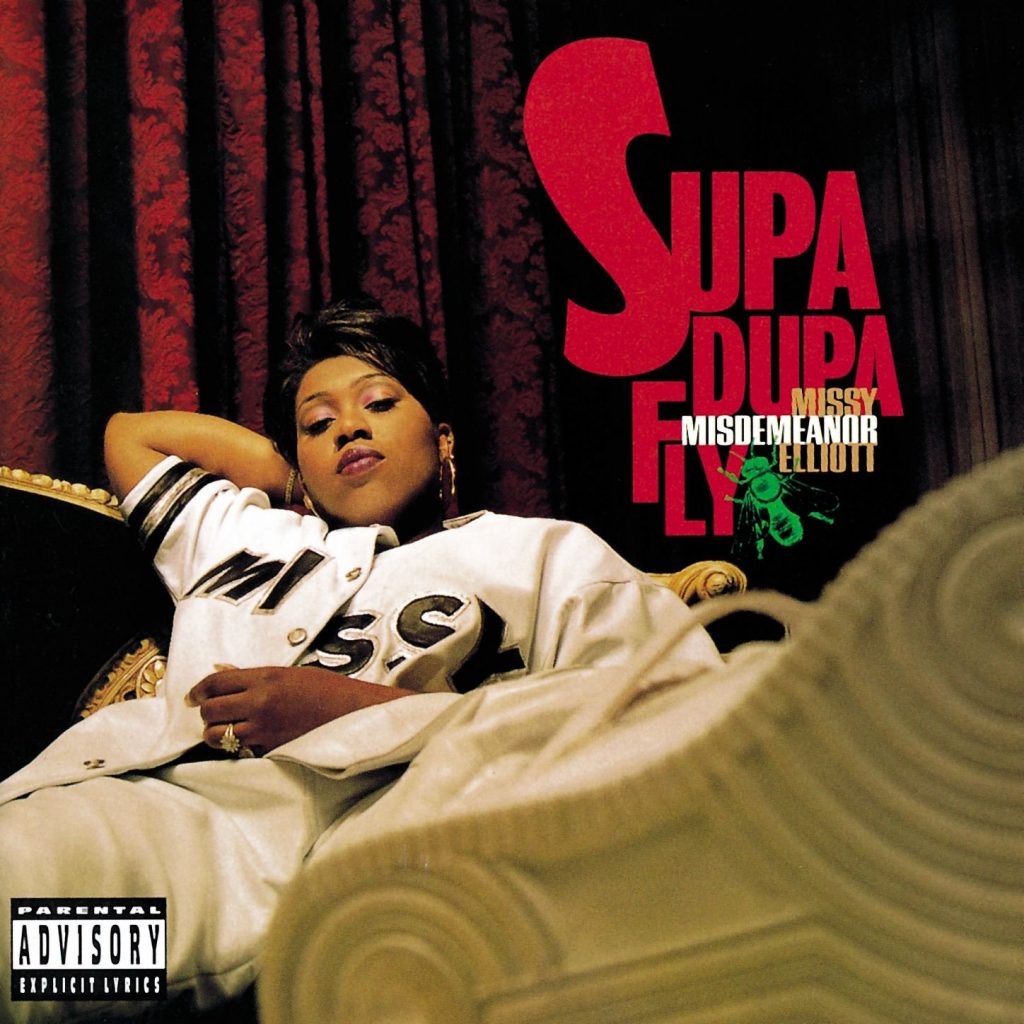
What’s your personal favourite ?
I don’t know if it’s really a rap album, but I still listen to The Miseducation of Lauryn Hill very often. It’s not far from being perfect. It’s rich, and never gets old. I might sound a bit strict, but most albums for the record era contain « empty » tracks. The advantage of Lauryn Hill’s album is that there are none. It’s a pleasure to listen to from A to Z.
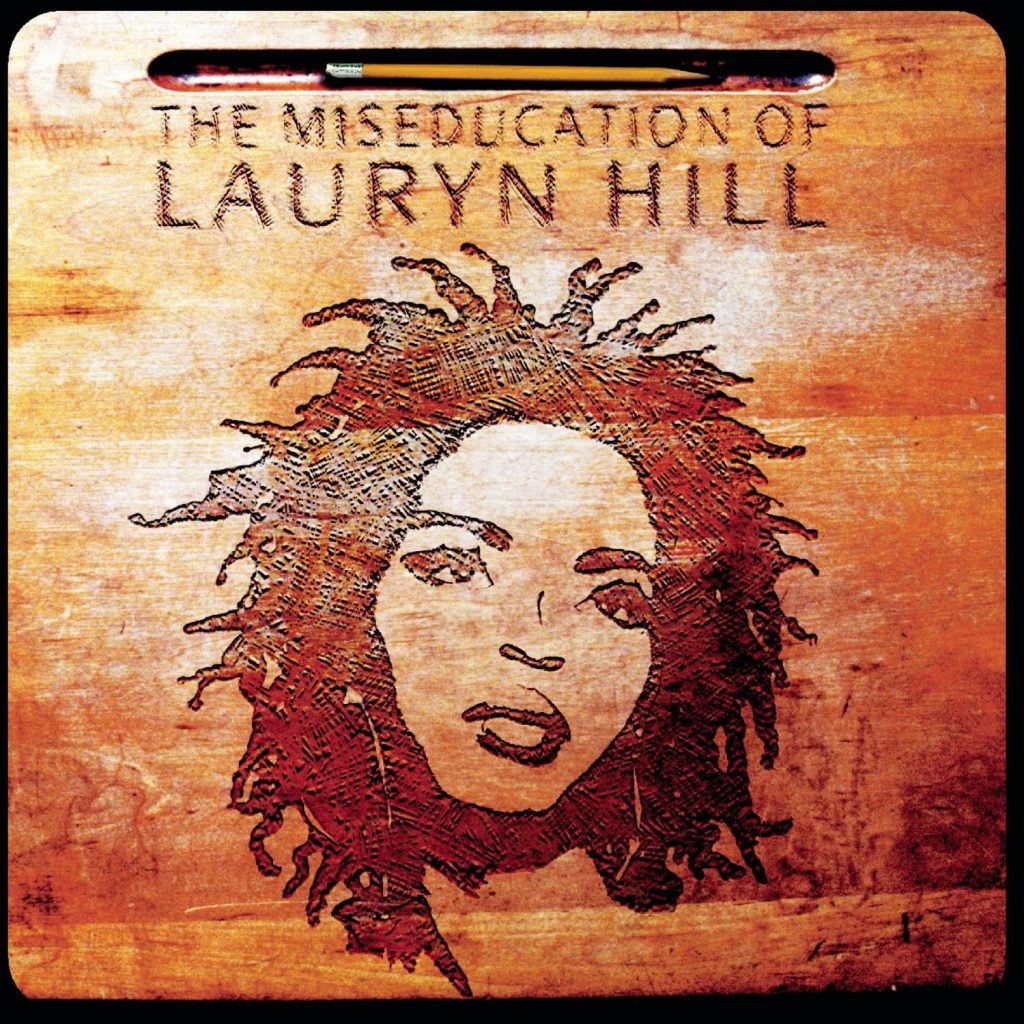
Which album has been the most innovating, among recent releases?
I liked Whack World, Tierra Whack’s concept album, released in 2018. The tracks are short, and the movie clips are completely crazy. It’s really artsy. We can’t really know the impact it’ll have yet. I am not sure she’ll ever get the « game changer » status, but her projet was remarkable. I’m also a big fan of Rico Nasty’s.
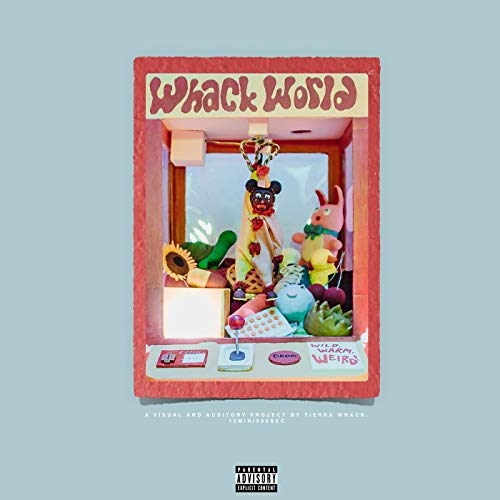
We know that you thoroughly follow the most confidential American scenes. Which « local » album would you like to share here ?
It’s getting a bit old, but I could quote all the female rappers of the drill scene in Chicago. Dreezy is quite emblematic of these easthetics, from 2011 to 2014. And it’s more of a mixtape than an album. If you’re a fan of drill, they are just as much of a staple as those of G-Herbo or even Chief Keef !
